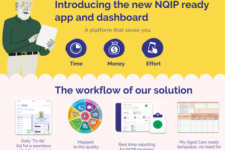
As the name implies, survey fatigue occurs when respondents become uninterested in sharing their feedback.
The natural response when residents (or your employees for that matter) aren’t engaging with your surveys is to say “they have survey fatigue, and they’re sick of filling them out”.
But chances are, you are wrong.
The most frequent reason people don’t want to fill out your survey if you really drill down to the root cause, is that you haven’t done anything since the last one. They don’t have survey fatigue – they have lack-of-action fatigue.
This is most commonly characterised by survey refusal or an indifferent approach to survey completion that produces suboptimal responses.
Survey fatigue is commonly divided into two categories, the first of which is Survey-Taking Fatigue. Survey-taking-fatigue occurs during the survey-taking process and is the result of poor survey design.
This often results in respondents terminating survey participation prematurely.
The second category of survey fatigue is known as Survey-Response Fatigue which affects respondents before the survey begins and can indicate that respondents perceive a lack of action stemming from previous feedback and that their opinions are not actually valued by the surveyor.
In the context of the aged care or home care setting, most people get ‘survey fatigue’ because of the latter – little action and follow up from the previous survey experience.
What are the tangible impacts of survey fatigue?
Inaccurate data – which is detrimental to your organisation’s customer experience strategy.
While survey fatigue is often thought to produce incomplete data, it can actually result in non-response bias which amplifies the views of respondents who feel compelled to critique and deliver feedback. It is not uncommon for these respondents to have the most extreme views, which can profoundly affect the accuracy of data.
The knock-on effect of inaccurate data is skewed insights which can impede an organisation’s ability to make sound decisions. Evidence-based decision-making is a hallmark of great care, but choices informed by data sets that are inaccurate are likely to have a negative impact.
Survey fatigue can also present a significant drain on resources and finances that have been invested in the surveying process. Two commodities that the aged care sector is currently starved of.
Other than taking action, how can you reduce survey fatigue?
Of the two sub-categories that define the different types of survey fatigue, combating the likelihood of survey-taking fatigue requires organisations to assess the practicality of their survey design and its surveying strategies.
Areas to consider for potential refinement are:
Staff training: On many occasions, the reason a resident/client will refuse to provide feedback results from the way the staff member interacts or asks them. Common areas for improvement with training come down to: approaching residents in a friendly, positive manner, explaining what it’s about and that it can be anonymous, explaining what has improved since the last survey, not rushing residents, sitting at eye level.
Survey length: The most successful surveys are simple and concise. An excessive amount of questions can become frustrating for respondents which increases the likelihood of subpar answers and premature survey termination.
Accessibility: Surveys that are designed to consider the needs of people with barriers to web access are imperative for surveying in the aged care space. Some common barriers to surveying aged care resident cohorts include small text, hard-to-distinguish buttons, content only available in English and surveys that cannot be navigated by individuals with disability or memory impairment.
Questions: Questions that are relevant, non-repetitive and easy to comprehend increase the likelihood of respondents remaining engaged and willing to share feedback.
How can we reduce the risk of survey fatigue before surveying begins?
While having fit-for-purpose surveys and best-practice customer experience strategies is crucial to accumulating accurate data sets that can inform decision-making, failing to assure respondents that feedback from previous surveys is being heard and acted upon can deter respondents before your next round of surveying has even begun.
Combating survey-response fatigue requires organisations to effectively communicate the changes being made as a result of insight gleaned from the respondents.
Although enacting change often requires time and planning, ensuring that respondents are aware of the steps being taken to action changes will go a long way to assuring them that future surveys are meaningful.
Respondents who feel that their feedback is valued are far more likely to share their thoughts and opinions, equating to more accurate data sets and definitive insights that can inform decision-making.
If survey-response-fatigue is negatively impacting your data collection, it’s time to stop and reassess your organisational response to previous data. However, if suboptimal data sets are the result of poor survey design or an ineffective engagement strategy, there is no better time to talk to an expert.
When viewed in relation to service providers, this means effectively working towards achieving person-centred care and ongoing effective communication between an organisation and its clients.
Looking for a Customer Experience Survey tool that keeps respondents engaged?
Our CX experts can ensure that survey fatigue does not impede your organisation’s data collection and decision-making.
Get in touch with Bianca Smith, Growth & Partnerships to learn more about our specific survey tools, or simply book in a demo below.







